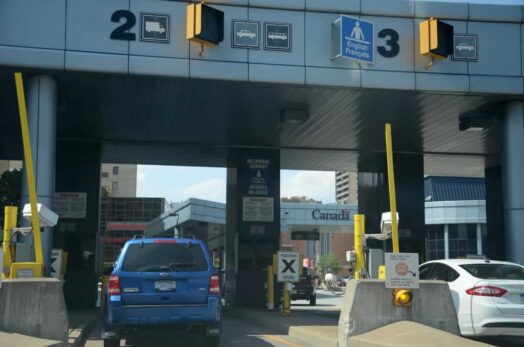
Flagpoling, a legal practice, is helping temporary visa holders in Canada quickly bypass the lengthy visa application processing times in the country by leaving Canada, heading to the US, then immediately returning through land border crossings in Ontario’s Niagara region.
The Benefits of Choosing to Flagpole
Flagpoling allows for visa applicants to have their applications processed on-site, and the results are communicated that same day. This removes the uncertainty that comes with having to wait for approval or rejection of the visa application through the regular application process. Additionally, by meeting and submitting their applications physically, applicants have the advantage of having errors with their forms and other issues pointed out to them immediately by immigration officers. This ensures that they get their visa applications right the first time and do not have to deal with application delays.
Backlogs and IRCC Service Standards
Irrespective of the benefits of flagpoling, the process highlights a problem with the current application processing system, which is the backlog created by the Immigration, Refugees, and Citizenship Canada (IRCC). IRCC sets service standards that outline the processing time it should take for visa applications to be processed. However, the system has been unable to process applications effectively as expected, leading to a backlog of nearly 2 million visa applications as of March 31st. As much as 50% of the visa applications are yet to be processed within the set standards, leading to massive logjams.
The Scope of the Backlog
IRCC reports that of the 2 million backlogged visa applications, over one million tick off the service standards set by the agency, and nearly a million fall outside of the service standards. Service standard processing times for spousal and family-class sponsorship applications are set at 12 months, while the standard time for applications through the Express Entry program is six months. However, these timelines have been breached repeatedly, contributing to the current glut of visa applications.
Reduction of Backlogs
IRCC has acknowledged the problem and is implementing measures to reduce the backlog. These measures include digitization of applications, hiring, and training more staff, and automation technology to ease the processing process, even as the COVID-19 pandemic continues to affect operations. Applicants are encouraged to apply directly through the IRCC website and avoid the flagpoling process since border services personnel are not directly associated with immigration processing.

Be the first to comment